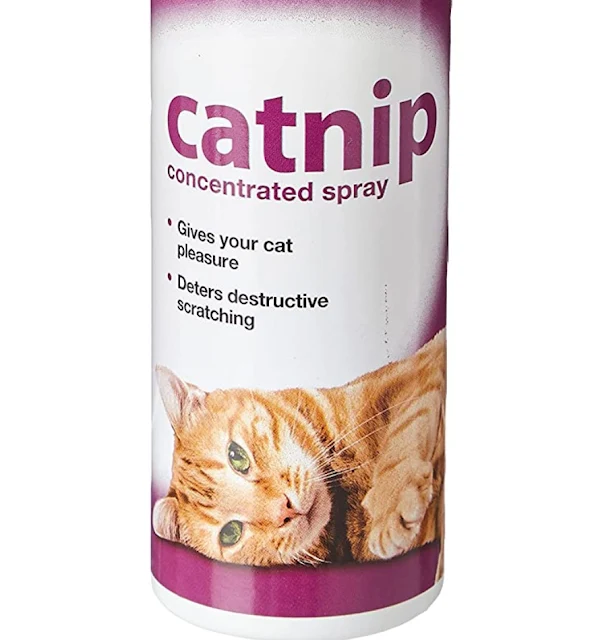I have just bumped into something that I think is interesting and which is particularly pertinent today with so many full-time indoor cats. I believe that often these cats are under-stimulated. I'm not apportioning blame. I just think that you can't bring cats in from the outside and confine them to the inside and leave it at that. The human caregiver has more to do and here are two examples.
RELATED: The big flaw that is never admitted in keeping cats indoors full-time.
Olfactory
This tip applies more to shelter cats than to full-time indoor domestic cats in homes but I think it is relevant. It is called "olfactory enrichment". The experts believe that it is relatively underused in animal housing perhaps because humans have a relatively poor sense of smell compared to cats and other animals.
 |
| Catnip gives your cat pleasure. Image: Johnsons veterinary products. |
We know that you can buy catnip spray. I think that if you use catnip spray from time to time to spray into the environment you will find that there will be an increasing amount of time that the cat in that home is active because they will be stimulated by the chemical, nepetalactone, which we know excites and stimulates domestic cats.
A study examined the effect of introducing four odours on the behaviour of six zoo-housed black-footed cats. These are small wild cats are known to be the most prolific hunters of all the cats as it happens. The odours that were introduced were nutmeg, catnip, body odour of prey (quail) and no artificial odour and control. They found that there was an increase in their activity with all of the genuine odours with nutmeg causing less of an effect than catnip or odour of prey. As mentioned, catnip is a known stimulant for cats. Although not all cats are affected similarly.
Visual
In a cat's life there are two forms of cat television. There is the human television or perhaps iPad through which you can show images which may help to stimulate your cat. I've seen many videos of cats watching television with great interest. I am sure that you can buy programs for a television designed for cats. You'll need a CD player attached to the TV if you can't access programs provided in the usual way.
 |
| Window box for indoor cats. Image in public domain. |
Perhaps a better form of cat television is the humble window. Full-time indoor cats spend a lot of time at windows looking out. They can get an awful lot of enjoyment doing that. There should be access to a window or windows in the home of a full-time indoor cat.
To improve the arrangement you can build or buy window boxes which are inserted into the window and which overhang on the outside of the house. The front of the window box should not be glazed but should be open to the elements with a grill. In this way the cat can both see and smell the outside.
 |
| Window box is a firm favorite. Image in the public domain. |
I would have thought that such a construction would be a fundamental necessity for any full-time indoor cat or cats. I would have thought where there are more than one indoor cat you could build more than one window box arrangement. They are like mini-catios and you see a whole range of designs. How many households have them? I would say very few relative to the number of indoor cats.
They are actually decorative as well and improve the appearance and ambience of a house.



No comments:
Post a Comment
Your comments are always welcome.
Note: only a member of this blog may post a comment.